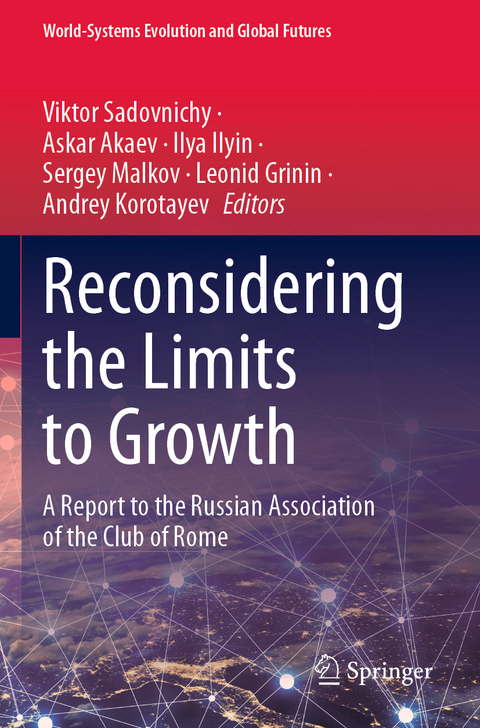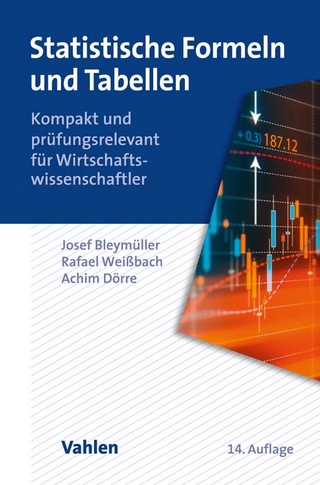
Reconsidering the Limits to Growth
Springer International Publishing (Verlag)
978-3-031-35001-6 (ISBN)
Echoing the famous "The Limits to Growth" report from 1972, this edited volume analyses the changes that the World System has undergone to the present, on the fiftieth anniversary of the original report. During the past fifty years, both the concept and understanding of these limits have significantly changed. This book highlights that the evolution of the World System has approached a new critical milestone, moving into a fundamentally new phase of historical development, when the old economic and social technologies no longer work as efficiently as before or even begin to function counterproductively, which leads the World System into a systemic crisis.
The book discusses the transition of human society to a new phase state, the shape of which has not yet been determined. New approaches are needed for both, for the analysis of the global situation, and for forecasts. The book is based on an integrated approach including the world-systems, historical and evolutionaryperspectives, as well as a systematic view of society, in which changes in one subsystem cause transformations in others. Through mathematical modeling, it defines the main vectors of transformations of the World System; makes a detailed forecast of the development of all the main subsystems of the society and the World System, while presenting horizons of changes from short-term to ultra-long-term; and presents different development scenarios as well as recommendations on how to achieve a transition to the most favorable scenario.
The book will appeal to members and followers of the Club of Rome, policy-makers, as well as to scholars from various disciplines interested in a better understanding of the World System evolution, global futures, development studies, climate change, and future societies.
Viktor Sadovnichy is a Professor of physics and mathematics and the Rector of Lomonosov Moscow State University (Russia) since 1992, as well as a Full Member of the Russian Academy of Sciences. His main research focuses on mathematics, mechanics, and computer science. Sadovnichy's research relates to the theory of differential operators and functional analysis, as well as mathematical modeling of long-term social and economic dynamics. He has obtained important theoretical and applied results related to the issues of dynamic simulation of controlled flights, in particular, of spacecraft and aircraft. The development of the world's first zero-gravity simulator for Earth conditions was based on this work.
Askar Akaev is the First President of the Kyrgyz Republic and a Foreign Full Member of the Russian Academy of Sciences. He works as Chief Research Professor at the Prigogine Institute for Mathematical Investigations of Complex Systems at the Moscow State University (Russia). He further is an Academic Supervisor of the Centre for Stability and Risk Analysis at HSE University, Moscow, (Russia). Askar Akaev has authored and co-authored over 300 scientific publications, including such monographs as Coherent Optical Computers (1977), Optical Methods of Information Processing (1983), Holographic Memory (1996), Selected Lectures on Optical Computers (1996), Economic Transition from the Point of View of a Physicist. A Mathematical Model of Emerging Economy (2000), Modeling and Forecasting the World Dynamics (2012), Quality of Education, Effectiveness of R&D, and Economic Growth. Quantitative Analysis and Mathematical Modeling (2016), among others.
Ilya Ilyin is a Professor and Head of the Department of Global Studies, as well as the Dean of the Faculty of Global Studies at Moscow State University (Russia). He is the author of more than 350 academic papers. Ilyin is the Chairman of the Presidium of the Societyfor Global Studies, President of the International Public Organization for the Promotion of Public Diplomacy, Scientific, Educational and Youth Cooperation "Eurasian Commonwealth", Chief Scientific Secretary of the International Academy of Global Studies, Chairman of the Russian Committee and Vice President of the Intergovernmental Council for the UNESCO Program "Management of Social Transformations - MOST", an honorary worker in the field of state youth policy and education, as well as Editor-in-Chief of the journal "Bulletin of Moscow University. Series 27. Global Studies and Geopolitics".
Sergey Malkov heads the Center for Long-Term Forecasting and Strategic Planning at the Moscow State University (Russia). He also works as a Senior Research Professor at the Institute of Economics, Russian Academy of Sciences and Centre for Stability and Risk Analysis at the HSE University in Moscow (Russia). Malkov is the author of over 300 scholarly publications, including, among others: Social self-organization and historical process: possibilities of mathematical modeling (URSS, 2009), Modeling and forecasting of world dynamics (ISPI RAS, 2012, with V. A. Sadovnichy et. al), A new theory of the reproduction of capital: development and practical application (Nestor-Istoriya, 2016, together with V. I. Mayevsky and others), The 21st Century Singularity and Global Futures. A Big History Perspective (Springer, 2020, with David J. LePoire et. al).
Leonid Grinin is a Senior Research Professor at the Centre for Stability and Risk Analysis at the HSE University in Moscow (Russia), as well as a Senior Research Professor at the Oriental Institute of the Russian Academy of Sciences. He is co-editor of the international journals Social Evolution & History and the Journal of Globalization Studies, as well as co-editor of the international almanacs History & Mathematics, Evolution, and Kondratieff Waves. He is the author of more than 600 publications,i
Chapter 1. Introduction: Hoping for the Future.- Part 1: Looking into the Past and the Future.- Chapter 2. Macrohistorical Approach.- Chapter 3. Future Society and Transition to It.- Part 2: Problems, Forecasts, Solutions (Climate, Ecology, Demography, Aging).- Chapter 4. Climate and Energy: Scenarios of Energy Transition and Global Temperature Changes Based on Current Technologies and Trends.- Chapter 5. Ecology: Life in the "Unstable Biosphere".- Chapter 6. Demography: Toward Optimization of Demographic Processes.- Chapter 7. Global Aging - an Integral Problem of the Future: How to Turn a Problem into a Development Driver?.- Part 3: Problems, Forecasts, Solutions (Technology, Economics, Socio-Political Development).- Chapter 8. Technology: Limitless Possibilities, Effective Control.- Chapter 9. Economics: Optimizing Growth.- Chapter 10. Socio-Political Transformations: A Difficult Path to Cybernetic Society.- Chapter 11. Future Political Change: Toward a More Efficient World Order.-Chapter 12. High Income and Low Income Countries: Toward a Common Goal at Different Speeds.- Chapter 13. Africa - the Continent of the Future: Challenges and Opportunities.- Part 4: Modeling Social Self-Organization and Historical Dynamics -from Agrarian to Cybernetic W-Society.- Chapter 14. Modeling Social Self-Organization and Historical Dynamics: An Overview.- Chapter 15. Modeling Social Self-Organization and Historical Dynamics: A General Approach.- Chapter 16. Modeling Social Self-Organization and Historical Dynamics: Agrarian Society.- Chapter 17. Modeling Social Self-Organization and Historical Dynamics: Industrial Society.- Chapter 18. Modeling Social Self-Organization and Historical Dynamics: Global Phase Transitions.- Chapter 19. Modeling Social Self-Organization and Historical Dynamics: Modern Society and a Look into the Global Futures: Cybernetic W-Society.- Chapter 20. Modeling Social Self-Organization and Historical Dynamics: Africa's Futures.- Chapter 21. Analyzing Social Self-Organization and Historical Dynamics: Future Cybernetic W-Society: Socio-Political Aspects.- Chapter 22. Analyzing Social Self-Organization and Historical Dynamics: Life Quality Index.- Chapter 23. Conclusion: Reconsidering The Limits - Suggestions (Come On!).
| Erscheinungsdatum | 28.09.2024 |
|---|---|
| Reihe/Serie | World-Systems Evolution and Global Futures |
| Zusatzinfo | XV, 540 p. 146 illus., 120 illus. in color. |
| Verlagsort | Cham |
| Sprache | englisch |
| Maße | 155 x 235 mm |
| Themenwelt | Wirtschaft ► Volkswirtschaftslehre ► Makroökonomie |
| Schlagworte | Africa • Climate • cybernetic society • Demography • Ecology • Energy Transition • Environment • Forecasting • Future Society • Global ageing • Global futures • Global temperature changes • global warming • Growth optimization • Modelling • Socio-political transformations • technological revolution • world order • World system |
| ISBN-10 | 3-031-35001-4 / 3031350014 |
| ISBN-13 | 978-3-031-35001-6 / 9783031350016 |
| Zustand | Neuware |
| Informationen gemäß Produktsicherheitsverordnung (GPSR) | |
| Haben Sie eine Frage zum Produkt? |
aus dem Bereich


